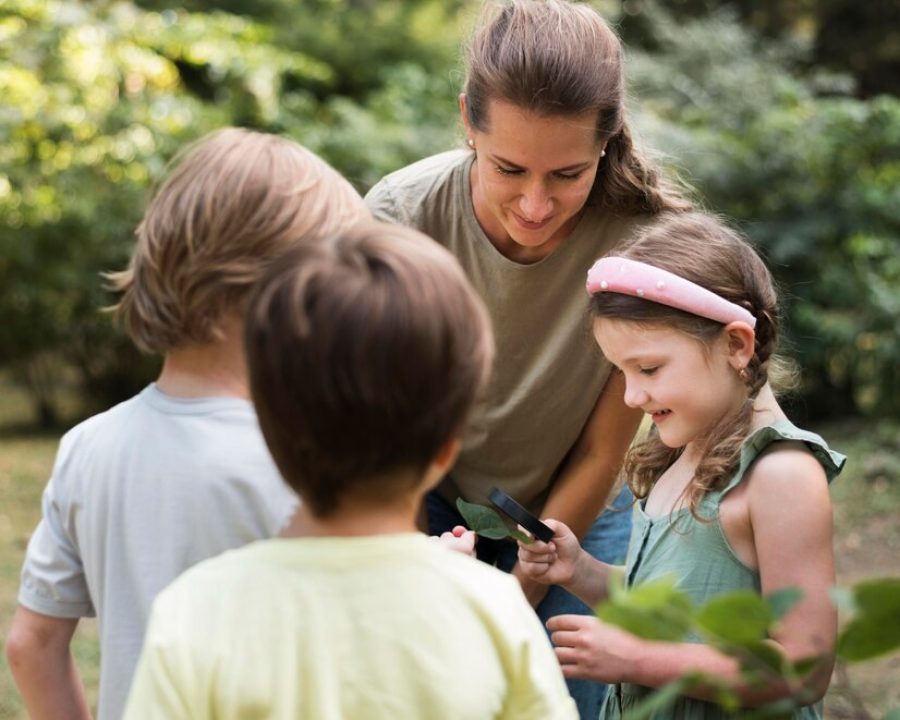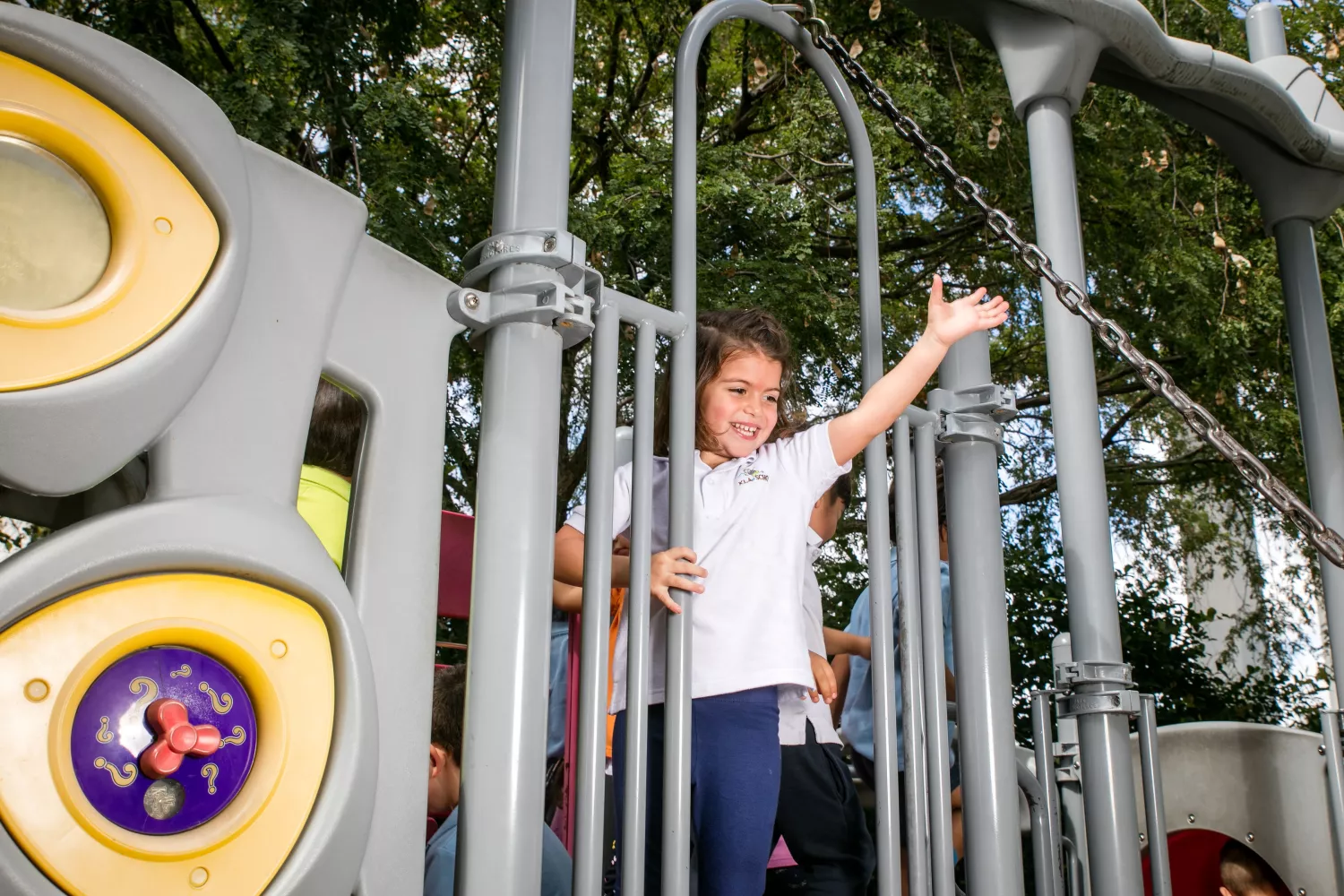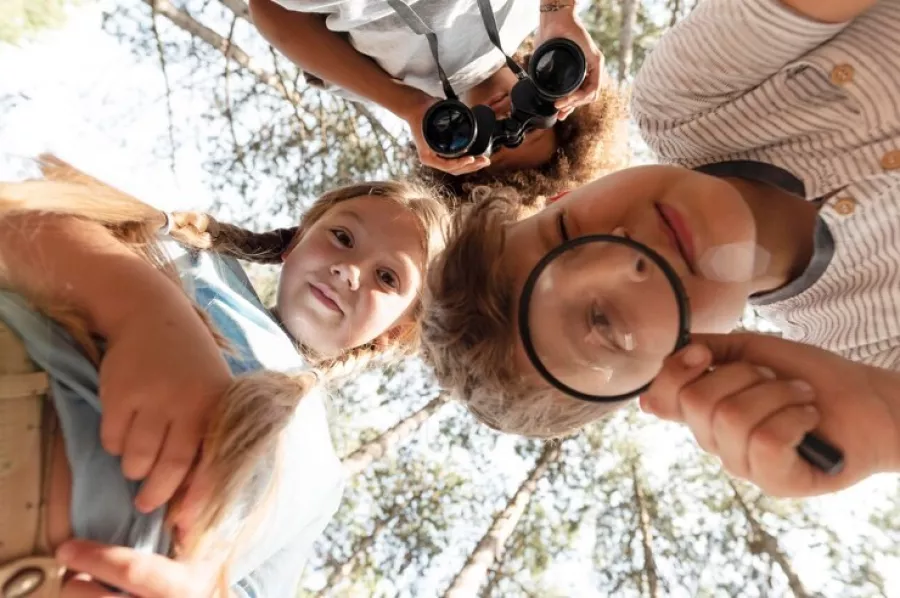50 Outdoor Activities For Toddlers: Education With Everyday Items
Topics: Outdoor Activities
Age Range: Preschool
Toddlers are naturally full of energy and curiosity. They learn best through hands-on experiences that stimulate their senses and engage their imagination. Warm weather offers the perfect opportunity to combine learning with play outside. Whether in a backyard, park, or neighborhood sidewalk, the outdoors becomes a vibrant classroom filled with endless possibilities.
The Power of Outdoor Activities for Toddlers in Early Development
Outdoor activities for toddlers nurture physical skills, social development, creativity, and cognitive growth. Everyday items like sticks, buckets, chalk, and leaves transform into tools for discovery. Regular exposure to outdoor learning experiences strengthens problem-solving abilities, language skills, and emotional regulation.
Creative Movement and Sensory Play Adventures
Movement, exploration, and sensory play help toddlers build strength, coordination, and body awareness. With a few simple natural materials, young children can embark on active adventures that spark creativity, encourage learning, and turn every moment outside into a joyful discovery.
- Nature color hunt: Hand toddlers a color wheel or colored cards and ask them to find natural items that match the colors. This simple scavenger hunt builds color recognition, sharpens observation skills, and turns an ordinary walk into an exciting discovery game.
- Leaf pile jumping: Rake dry leaves into soft piles and invite toddlers to bounce, toss, and roll around in them. Leaf play introduces new textures and sounds, helping toddlers explore cause and effect while strengthening their gross motor skills and enjoying physical, sensory-rich fun.
- Water balloon toss: Fill small balloons with water and gently toss them back and forth. Toddlers improve hand-eye coordination, timing, and fine motor control while giggling at the suspense. Water balloons create playful movement challenges and quick moments that build reflexes.
- Nature obstacle course: Use sticks, rocks, and buckets to create a simple obstacle path. Guide toddlers to crawl under, step over, and balance across natural items, boosting their agility, strength, and problem-solving skills in a playful and adventurous way.
- Barefoot walking paths: Invite toddlers to walk barefoot across grass, sand, or pebbles. Feeling different textures underfoot enhances sensory input, improves balance, and builds body awareness. Discussing the sensations helps toddlers develop descriptive language and sensory mindfulness outdoors.
Science and Discovery Exploration Outdoors
Young children are natural scientists, eager to investigate everything they see. Outdoor science activities spark curiosity, strengthen observation skills, and introduce basic ideas about the natural world. Everyday materials like chalk, water, and magnifying glasses turn outdoor spaces into exciting learning labs.
- Bug observation: Hand a toddler a magnifying glass and have them explore the ground for insects, such as ants and beetles. Observing tiny creatures closely builds focus, sparks curiosity about living things, and encourages toddlers to ask questions about animal behaviors and movement.
- Shadow tracing: On a bright day, trace your toddler’s shadow with sidewalk chalk. Revisit later to see how it changes with the sun's movement. This simple activity introduces early concepts of light, time, and spatial awareness playfully.
- Weather watcher: Head outside and notice the sky together. Help toddlers identify cloud shapes, feel the breeze, or notice changes in temperature. Talking about the weather encourages sensory awareness, vocabulary growth, and an early understanding of nature's daily patterns and changes.
- Water table experiment: Set up a shallow water bin with funnels, cups, and sponges. Encourage pouring, filling, and floating tests. Water play builds fine motor skills, introduces early science concepts like buoyancy, and promotes experimental thinking through fun, hands-on exploration.
- Rock collecting and sorting: Invite toddlers to gather rocks during a walk and sort them by size, shape, or color. Sorting encourages observation, categorization, and early math skills, helping children recognize similarities, differences, and simple patterns using natural objects.
Creative Arts and Hands-On Outdoor Projects
Simple materials like sticks, leaves, and stones invite toddlers to create, explore, and imagine freely. Every day, outdoor play sparks sensory experiences, strengthens fine motor skills, boosts creativity, and builds confidence, turning nature into a lively, hands-on classroom for young learners.
- Mud painting: Mix a little water with dirt to create "mud paint" and use sticks as brushes. Toddlers enjoy the messy fun while developing creativity, fine motor control, and a connection to natural materials through sensory-rich art-making experiences.
- Nature collage: Gather leaves, flowers, and twigs during a nature walk. Use glue and paper to create a colorful collage by arranging the pieces. This simple project enhances sorting, design thinking, and appreciation for the variety of textures found outdoors.
- Sidewalk chalk murals: Offer colorful sidewalk chalk and encourage toddlers to fill driveways or sidewalks with big, bold designs. Drawing large shapes and pictures helps strengthen arm muscles, improve grip control, and boost confidence in artistic self-expression.
- Paint with water: Give toddlers a bucket of water and old paintbrushes to "paint" patios, fences, or sidewalks. This mess-free activity lets children practice brush strokes, fosters imagination, and teaches about evaporation as the water "disappears" from the surface.
- Outdoor easel painting: Set up a child-sized easel outside and provide washable paints. Painting vertically builds shoulder strength, improves hand-eye coordination, and provides toddlers with a fresh and inspiring environment to explore colors, shapes, and their artistic ideas.
Language Building Through Outdoor Experiences
Spending time outdoors gives toddlers endless chances to grow their language skills. Talking about what they see, hear, and feel helps expand vocabulary, improve listening skills, and encourage clear communication, while keeping learning lively, natural, and full of exciting discoveries.
- Story walks: Tell a simple story while walking outside, using objects you spot, such as a tall tree or a colorful bird, to help tell the tale. This activity builds creativity, narrative skills, and encourages toddlers to connect words with real-world experiences around them.
- Animal sound safari: Take a "safari" walk and listen for the sounds of animals and insects. Mimic their sounds together to encourage playful communication. Making animal noises helps toddlers practice vocal control, expand vocabulary, and engage in early dramatic play through sounds and movement.
- Nature naming game: Point out trees, flowers, bugs, and other outdoor items, naming and describing them with colors, textures, and shapes. This boosts toddlers' vocabulary, categorization skills, and observation abilities while encouraging them to notice details about the world around them.
- Outdoor storytime: Pick a shady spot outside and read favorite books aloud. Listening to stories in a new setting enhances attention spans, strengthens listening comprehension, and fosters a love of reading, which is linked to the calm, sensory-rich outdoor environment.
- Echo game: Say fun words or short phrases loudly outdoors and have your toddler echo them back. Playing with sound repetition strengthens listening skills, pronunciation, and memory, making language learning feel like a lively and energetic game.
Math Skills Through Play and Exploration
Simple activities like counting, sorting, and measuring natural objects help toddlers build early math skills. Through movement and exploration, young children develop a sense of numbers, recognize patterns, and strengthen their spatial thinking as they engage with the world around them in playful, hands-on ways.
- Counting nature treasures: While walking outdoors, collect sticks, stones, flowers, or shells and count them together. Counting natural treasures helps toddlers practice number recognition, one-to-one correspondence, and quantity comparison in a hands-on, engaging way that feels like a fun discovery game.
- Shape hunt: Search outside for objects shaped like circles, triangles, or round stones or triangular leaves. Shape hunts sharpen toddlers' visual discrimination skills, build early geometry understanding, and help children notice the forms and patterns in the natural world.
- Measuring with sticks: Find different sticks and compare their lengths by lining them up next to each other. Measuring with natural materials introduces toddlers to basic concepts of size, comparison, and order, encouraging the development of early problem-solving skills in a tactile and outdoor setting.
- Sorting seashells: After collecting seashells at the beach or a park, sort them by color, size, or shape. Sorting activities develop logical thinking, categorization skills, and attention to detail while giving toddlers a hands-on way to organize and explore.
- Pattern play: Use rocks, leaves, or pinecones to create simple, repeating patterns for toddlers to copy and build upon. Pattern play strengthens early math foundations, critical thinking, and memory skills, while also encouraging creativity and careful observation outdoors.
Building Physical Skills With Outdoor Challenges
Simple physical challenges encourage toddlers to build strength, balance, and coordination while having fun. With natural materials and playful setups, children develop gross motor skills, gain confidence in their bodies, and experience the joy of active movement in everyday outdoor spaces.
- Hula hoop toss: Set up hula hoops at different distances and toss beanbags into them. This game improves toddlers’ hand-eye coordination, depth perception, and motor planning while encouraging gentle throwing skills and excitement with every successful toss.
- Rolling tires: Use lightweight tires or large balls and encourage toddlers to roll them across the yard. Rolling objects help toddlers build upper body strength, spatial awareness, and problem-solving skills as they learn to control speed and direction.
- Balance beam walk: Lay a sturdy wooden plank flat on the ground and guide toddlers to walk across it. Practicing balance builds core strength, body control, and focus, helping toddlers improve stability and confidence with each successful step.
- Hopscotch with natural materials: Outline a hopscotch board using sticks and stones instead of chalk. Hopping from square to square strengthens leg muscles, coordination, and rhythm while also helping toddlers practice counting and following simple sequences during active outdoor play.
- Chasing bubbles: Blow bubbles and invite toddlers to run, jump, and pop them. Chasing bubbles sharpens reflexes, boosts agility, and encourages spontaneous movement. This joyful, energetic game develops reaction time, motor planning, and a sense of playful accomplishment.
Creative Role Play and Imaginative Adventures
Pretend play outside invites toddlers to dream, create, and explore new ideas. With simple props and nature as their stage, children build language skills, strengthen social connections, and develop problem-solving abilities while acting out stories and imaginative adventures.
- Outdoor kitchen play: Set up a “mud kitchen” with old pots, pans, and spoons. Toddlers love mixing dirt, water, and leaves, pretending to make a mess. This messy, hands-on activity encourages creative thinking, sensory exploration, and early role-playing skills.
- Treasure hunt: Hide small toys or nature treasures around the yard and give toddlers simple clues to find them. Treasure hunts build problem-solving abilities, direction-following skills, and boost excitement through movement and discovery.
- Pretend campout: Pitch a small tent and have a backyard camping adventure. Toddlers can pretend to sleep outdoors, tell stories, or "cook" over imaginary fires. Pretend campouts promote creativity, independence, and a sense of comfort with nature.
- Pirate adventure: Turn the yard into a pirate ship and embark on a treasure hunt. Toddlers can shout "Ahoy!" and search for hidden "gold." Pirate play encourages imagination, movement, and simple storytelling as they act out fun adventures.
- Gardening helpers: Give toddlers small tools to dig, plant seeds, and water the plants in the garden. Gardening builds responsibility, fine motor skills, and an understanding of how plants grow, connecting toddlers to nature through hands-on care and observation.
Sensory-Rich Water Play and Exploration
Playing with water gives toddlers the chance to explore textures, movement, and cause and effect in fun, hands-on ways. Activities like splashing and pouring strengthen motor skills, boost creativity, and introduce early science concepts through joyful, refreshing outdoor experiences.
- Splash pad fun: Visit a splash pad or set up sprinklers for backyard water play. Running through sprays helps toddlers improve their coordination, balance, and body awareness while enjoying cool, energetic movements that stimulate all their senses.
- Puddle stomping: After a rainstorm, dress toddlers in boots and encourage them to stomp through puddles. This playful activity develops gross motor skills, balance, and an understanding of cause and effect as toddlers see how splashing changes the puddle’s shape and creates ripples.
- Sponge toss game: Soak large sponges in water and toss them at targets or into buckets. Sponge tossing boosts hand-eye coordination, strengthens arm muscles, and turns simple aim-and-throw movements into a lively, giggly, and refreshing outdoor game.
- Ice cube exploration: Hand toddlers a few ice cubes to melt in the sun on their hands. Watching and feeling the ice melt introduces basic science concepts, including temperature, states of matter, and cause and effect, all through hands-on sensory play.
- DIY mini car wash: Fill a bin with soapy water and let toddlers "wash" toy cars or bikes. Scrubbing and rinsing build fine motor skills, responsibility, and creativity while reinforcing practical, real-world activities toddlers love to imitate.
Building Emotional and Social Skills Outdoors
Group play and shared outdoor experiences help toddlers develop critical social skills, such as communication, empathy, and cooperation. Simple activities encourage children to work together, take turns, and build emotional resilience while forming positive, lasting connections with friends and their environment.
- Partner drawing: Lay out a giant piece of paper outside and take turns adding to a shared drawing. This simple, creative project teaches cooperation, patience, and teamwork while encouraging toddlers to communicate and celebrate each other's ideas.
- Follow the leader: Set up a simple obstacle course and take turns being the leader. Toddlers practice following directions, leading with confidence, and working cooperatively, learning critical social-emotional skills that help build self-control, listening skills, and group participation.
- Nature circle time: Gather toddlers in a circle outdoors and sing songs, tell stories, or share observations. Outdoor circle time strengthens listening skills, promotes group participation, and helps children feel connected to both nature and their peers.
- Group garden project: Work together to plant flowers, herbs, or vegetables in a shared garden space. Gardening as a group teaches responsibility, teamwork, and patience, while giving toddlers a sense of accomplishment as they care for living plants.
- Toddler yoga in the park: Practice simple, animal-inspired yoga poses, such as "Downward Dog" or "Cat Stretch." Outdoor yoga helps toddlers improve their balance, flexibility, and body awareness while promoting mindfulness, relaxation, and emotional regulation in a peaceful and natural environment.
Exploring Creativity and Curiosity Through Simple Outdoor Adventures
Giving toddlers the freedom to explore with simple tools and natural materials sparks endless creativity. Open-ended activities encourage imaginative thinking, sensory discovery, and active play, transforming everyday spaces like backyards, parks, and trails into exciting learning environments.
- Stick maze adventure: Use sticks to create a simple maze on the ground. Guide toddlers through it by following the paths. This fun challenge builds problem-solving skills, spatial awareness, and perseverance as toddlers navigate twists and turns.
- Sensory nature bracelets: Wrap masking tape (sticky side out) around toddlers’ wrists and let them stick small leaves, petals, and grass onto it as they explore. Nature bracelets engage fine motor skills, color recognition, and sensory creativity.
- Listening walk: Take a quiet walk focused only on listening. Pause often and ask toddlers to describe what they hear, such as birds, wind, or distant traffic. This mindfulness activity strengthens auditory discrimination, patience, and descriptive language skills.
- Nature sorting picnic: Bring a blanket outside and collect natural items like twigs, flowers, and stones. Sit together and sort them into groups based on size, color, or texture. This relaxed "picnic" fosters early classification and observational skills.
- Bubble painting: Mix the bubble solution with a small amount of washable paint. Blow bubbles onto a large sheet of paper and let them pop to create colorful, splattered designs. This playful art project encourages creativity and introduces basic cause-and-effect learning.

Combining Educational Activities for Toddlers with Fun and Exploration
Fun outdoor activities for toddlers naturally blend learning and play. Engaging in hands-on outdoor experiences introduces foundational concepts like counting, observation, classification, and storytelling. Using everyday items like rocks, sticks, water, and chalk, toddlers strengthen their motor skills, build vocabulary, and develop early scientific thinking without even realizing they are learning.
Simple activities spark creativity and curiosity, laying the groundwork for future academic success. Sensory experiences outdoors enrich language development and problem-solving abilities. Collaborative projects foster early social skills and emotional intelligence, while physical challenges build strength, coordination, and confidence.
Encouraging a Lifelong Love for Outdoor Learning and Discovery
Choosing outdoor activities for toddlers promotes holistic development and a deeper connection to the natural world. Educational activities for toddlers in outdoor environments offer endless ways to explore, imagine, and learn using everyday materials. When children engage in fun outdoor activities for toddlers, they experience joy, freedom, and wonder—key ingredients in nurturing inquisitive minds and happy hearts.
At KLA Schools, this love for exploration continues to flourish during our Summer Camp experiences, where toddlers enjoy thoughtfully designed outdoor adventures that spark creativity, build friendships, and nurture a lifelong bond with nature.
By creating a daily habit of outdoor play and learning, parents and caregivers lay a strong foundation for curiosity, resilience, and a lifelong love of discovery.

